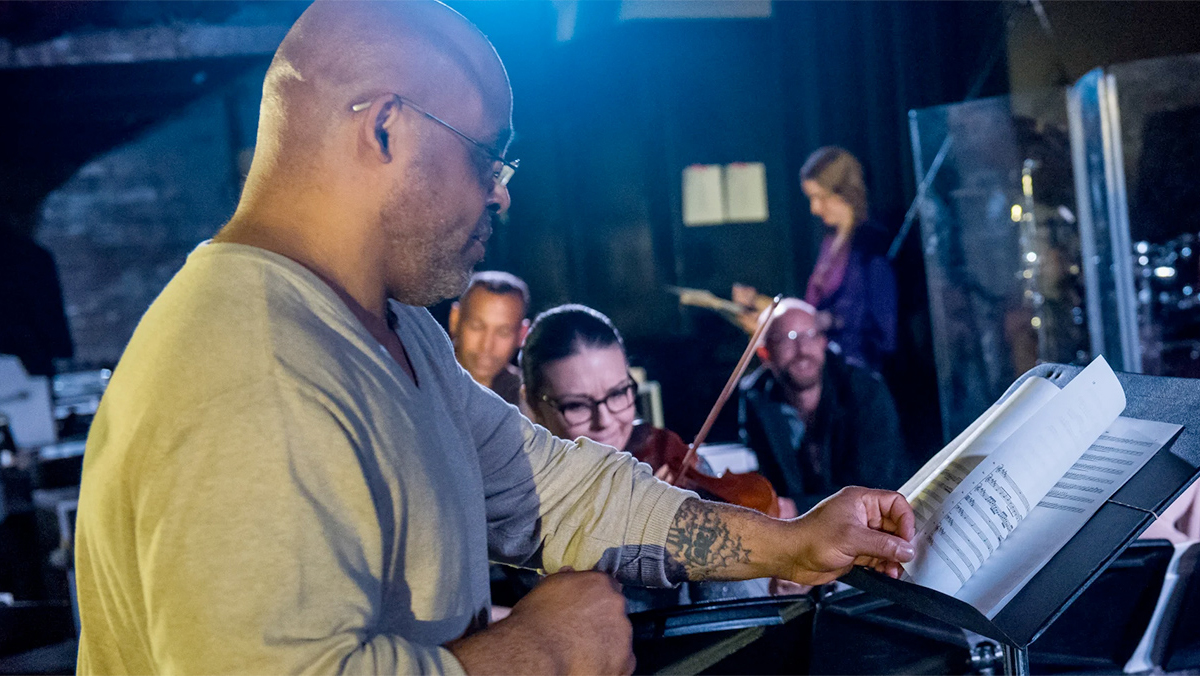In a piece for Pacific Standard, John J. Lennon writes how he has seen firsthand how music can restore what’s missing in prison: a respect for humanity.
EXCERPT
It’s a Friday night in January of 2017. I’m on my way to see my first-ever Sing Sing concert sponsored by Musical Connections, an outreach program from Carnegie Hall’s Weill Music Institute, in which professional musicians visit prison to compose and perform with prisoners. A group of us shuffle out of the cellblock, funnel through a dark brick tunnel, clear a metal detector, and enter the auditorium, where a prisoner-usher hands out playbills. It’s a dingy, high-ceilinged room with peeling paint and blue plastic pushdown seats, but the lighting and sound system are top-notch, set up by the sound designer for Hamilton on Broadway. Tonight’s concert, like the others scheduled for the season, has “roots” as its theme.
Rob, in state greens (the prison uniform), with Holy Ghost energy and dread locks hanging down his back, takes the mic and starts a hand-clapping rally. Joe Wilson, the boy from Brownsville, is on the keyboard. “My roots are from the church!” Rob yells. “How many of us up in here are sowing some good seeds?” Then he breaks into the opening tune, flexing his smooth R&B vocals. The songs that follow have Haitian, African, and Latin roots. One of the visiting musicians, Camila Meza from Santiago, Chile, jams on a guitar and sings a beautiful tune in Spanish from her 2016 debut album, Traces. I don’t understand it, but I feel it. “This is as good as it gets, when we can share this human energy,” she tells the boys in green, about 150 mostly black and brown faces, except mine and a few others, as we whistle and clap.
Read the full story at Pacific Standard.
